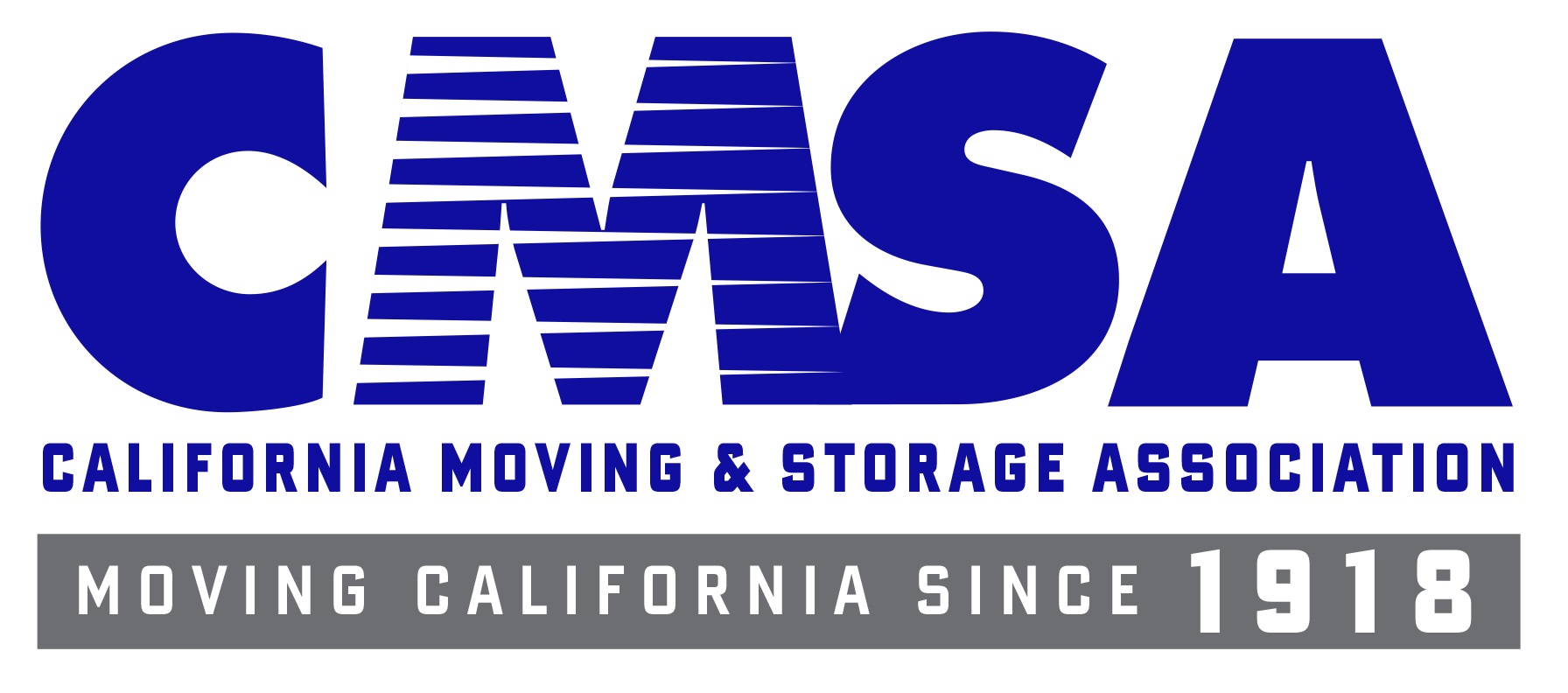|
Licensed:
Be sure you check that the mover is licensed with
the Bureau of Household Goods and Services (BHGS) when you are moving
within the state of California. This license number is a Cal-T (6-digit
number) and is to be shown on all documentation and advertising
materials. Please feel free to call the California Moving and Storage
Association (CMSA) or the Bureau of Household Goods and Services (BHGS)
to check license status. The CMSA consumer hotline number for calls
within California is (800) 672-1415. Never move with a mover whose
license is non-existent, revoked, and or suspended.
Estimate:
Make every effort to arrange for your move well in
advance of moving day. If you have more than a couple of rooms of
furniture to move, it is advisable to call two or more movers to obtain
written estimates for moving within California. Yes, it is important to
evaluate rates/prices, but you also want to evaluate the company through
their representative to be sure they are qualified to move your personal
possessions. The carrier may also want to see your belongings to be sure
they send out the right equipment and personnel to handle your move.
Find prospective movers in your area:
Find prospective movers in your area by contacting the CMSA
(800-672-1415) within California, personal referrals, real estate
brokers, and the yellow pages. Be wary of companies advertising on the
internet, in certain local newspapers and/or handbills talking "cheap"
price. Be especially careful in selecting movers over the internet. You
want to make sure that you have a local address for the mover so that
you know in fact that they are who they say they are and that they are a
viable business in your community. Check to make sure that they are
licensed and carry the required insurance coverage. Be sure they have
evidence of workers' compensation insurance as well as cargo insurance.
If they injure themselves at your residence and do not have the required
workers' compensation coverage, you may be held liable. If they break or
lose something, you want it fixed or replaced to the limits of their
liability.
Carrier/Mover Liability:
Make sure the mover explains their
basic liability and transit protection options and be sure to ask
questions.
Price/Rates:
While always a factor in buying anything, do not
select a mover on price alone. Permitted carriers are obligated to carry
the above referenced insurance, to provide trained personnel, and clean
and safe moving vans. That all costs money. Extremely cheap rates are a
red flag that the service will be less than adequate, and the carrier
will not have the mandated insurance and/or trained moving personnel.
Remember:
This company is sending movers into your residence
to handle and move your personal possessions. The lowest price,
especially if it is far below the average price of other movers, may be
a red flag. Be careful! Don't move priceless heirlooms on the cheap!
Storage:
If you require storage space for your household
effects for a short period of time prior to moving to a new residence,
your CMSA member mover can assist you. The Bureau of Household Goods and Services regulates storage rates for short-term storage, less than 90
days, through a maximum rate tariff.
Long Term Storage (more
than three months) is not regulated and rates can vary. Most household
goods storage facilities store personal effects in wooden containers
referred to as vaults. Common industry practice is to charge by the
vault or by weight per month plus valuation protection.
Some self-storage
companies offer storage and require you to load/unload your own vaults.
This widely advertised service sounds inexpensive. However, be sure to
check the monthly vault storage rates with those of a conventional
household goods storage warehouse. Conventional storage facilities
pricing is often far more reasonable. The possessions are stored in the
same manner as self-storage vaults and you can access your
belongings in the same manner as self-storage.
If you need information
on reputable, safe, clean, and reasonably priced storage facilities,
call or write the California Moving and Storage Association.
Not to Exceed Price:
For moves within California, the
Bureau of Household Goods and Services (BHGS) regulations require all
movers to provide each consumer with a written "not to exceed price"
before the move commences. This price will be clearly disclosed on your
Agreement For Service. The mover will have you sign this form before the
move begins.
Important Information for persons moving within California:
This is
a booklet mandated to be provided at the first-person contact between
the consumer and the mover, unless the consumer has received the booklet
from another mover.
Evaluate Service Presentations:
Listen and evaluate the
mover's presentation of services and price. Usually, an individual
presentation stands out in clarity, and your questions and concerns are
professionally answered to your satisfaction.
Visit the Mover:
Drive by, stop in the office and buy a box.
Make sure the mover has a business. See the trucks at the business site.
Look around to make sure these are the kind of people you wish to invite
into your residence to handle/move your personal possessions.
IF SELECTING A MOVER ON THE INTERNET OR ANY
MOVER,
BE SURE YOU KNOW THEIR PLACE OF BUSINESS
AND KNOW THAT THEY ARE
WHO THEY SAY THEY ARE!
A CMSA Member:
Select a mover with the
CMSA designation. You should want a mover who abides to a
code of ethics, operates clean and safe trucks, and utilizes trained
personnel. They will provide the quality service at fair and competitive
prices.
For more information or assistance call
(562) 865-2900 or (800) 672-1415
Updated: June 2021 |

